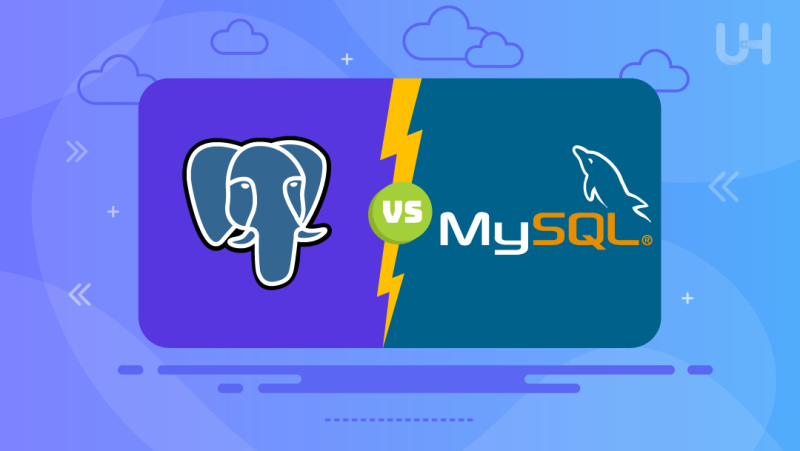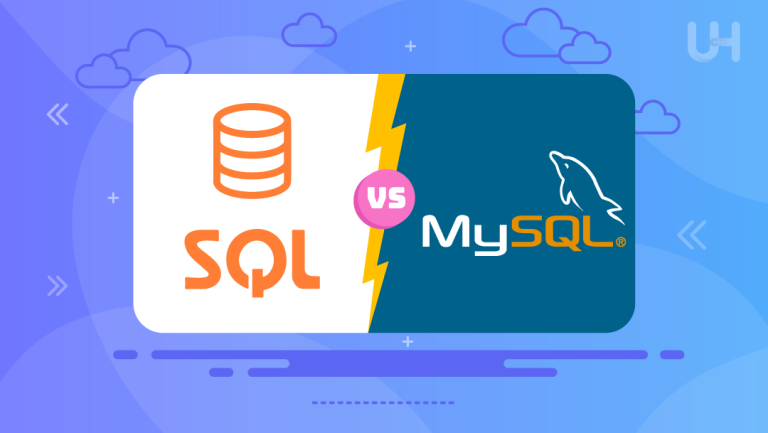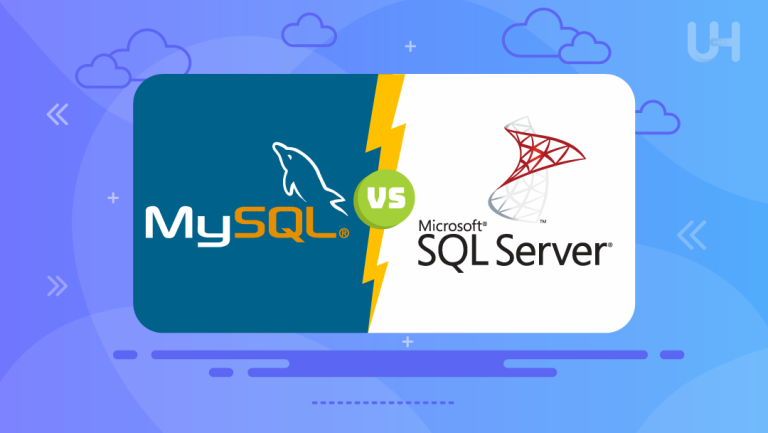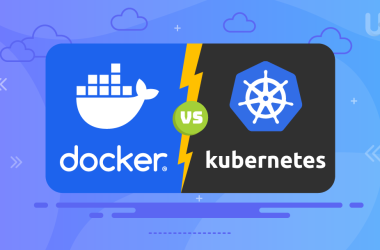Choosing the right Database Management System is very important for the success of your application. PostgreSQL vs MySQL are the two popular open-source relational databases that stand out. Both of them have their strengths and are widely applied in different industries.
In this article, we compare PostgreSQL vs MySQL to ease the burden of your selection with a clear view of what fits best with your application.
What is PostgreSQL?
PostgreSQL, more popularly known as Postgres, is a powerful, open-source, full-featured relational database management system. It has gained significant popularity among experts for its high robustness, scalability, SQL standards, and extended sets of features. Having been developed for over 30 years, this long period has yielded a very mature and feature-rich DBMS. It supports a wide variety of data types and advanced features, making it quite fitting for complex applications and high volumes. PostgreSQL’s flexibility and performance power make it so dear to developers and businesses.
Key Features of PostgreSQL
- ACID compliance: To ensure reliable transactions, it follows the principles of atomicity, consistency, isolation, and durability.
- Support of JSON: It allows flexible data storage security and data manipulation and performs at its finest when dealing with the need for semi-structured data.
- Extensibility: Functions, data types, and operators can easily be extended to enhance the capabilities of any database.
- Advanced indexing: It supports a wide array of indexing methodologies, including B-tree, hash, GiST, SP-GiST, GIN, and BRIN, all of which attain very high query performance levels.
- MVCC stands for Multi-Version Concurrency Control: It gives concurrent processing facilities while ensuring data consistency is maintained without locking.
- Full-text search: Enables efficient and powerful search capabilities within text data.
- Foreign data wrappers: These make access to external data sources easier, which enables integration and independence in questioning data stored in other databases or systems.
- Strong data integrity: It provides strong data integrity by ensuring correctness and consistency, achieved through foreign keys, constraints, and transactional integrity.
What is MySQL?
MySQL is a very popular open-source relational database management system, famous for its speed, reliability, and simplicity. It is the preferred choice for many web applications, especially those running in the LAMP (LINUX, Apache, MySQL, PHP/Python/Perl) stack. Oracle Corporation manages the software, and there are several editions in circulation. Among them, the majority are merely editions. Its ease and power have made it number one among developers.
Key features of MySQL
- Speed and reliability: It is optimized for read-heavy operations, ensuring fast query performance with no downtime.
- ACID compliance: Ensures transaction reliability through the principles of atomicity, consistency, isolation, and durability.
- Replication: It supports master-slave and master-master replication to provide redundancy and scalability.
- Scalability: The ability to work efficiently with large databases makes it appropriate for applications that require more and more data to be handled.
- Support for multiple storage engines: It is designed to support multiple storage engines, including ones like InnoDB and MyISAM, among many others, which assures great flexibility in using the most appropriate storage mechanism under different scenarios.
- Comprehensive support: Extensive documentation, a large community, and commercial support options.
- Security features: These include SSL certificate support, data encryption, and authentication plugins for data privacy and data security.
- Partitioning: This process divides large tables into smaller, though more manageable, divisions.
MySQL vs PostgreSQL: Similarities
Besides being powerful and open-sourced, both PostgreSQL and MySQL relational database management systems have a lot in common. Both of them are reliable and richly supported, with a raft of features that make them useful in many different applications.
Open Source in Nature
PostgreSQL and MySQL are also free to use. Both are open-source databases with an active community of developers and supporters. Continuous improvements make the databases economical solutions for businesses of all sizes. Furthermore, the open-source nature makes many customizations and integrations into diverse systems manageable.
SQL Compliance
There is adherence to SQL standards for both databases, upon which a guarantee has been given that they can handle complex queries and provide reliable transactions. Such a kind of adherence will guarantee that developers can use normal SQL syntax and commands with which they are accustomed in working with any of the systems. This conformance also assures that applications can be ported across these databases with minimal changes.
Get Started with Reliable Hosting Plans!
Are you looking for a robust and reliable hosting solution for your MySQL database? Look no further! UltaHost offers top-notch MySQL hosting services tailored to meet your application’s demands.
ACID Compliance
ACID compliance is very relevant to any relational database as it ensures the reliability and consistency of transactions. PostgreSQL vs MySQL are both ACID-compliant databases and, therefore, have quite an applicable tendency in related applications if data integrity considerations are crucial. It has massive relevance to a range of enterprise applications and eCommerce hosting solutions, especially where secure access to data, such as financial transactions data, is involved.
Support Cross-Platform
Developers of both PostgreSQL and MySQL support multiple operating systems, including Linux, Windows, and macOS. With specialized Windows hosting or MacOS VPS, the developers will be able to deploy their applications on the right platform and run them on other operating systems at their convenience. Cross-compatibility is key for businesses dealing with diverse IT systems.
PostgreSQL vs MySQL: Differences
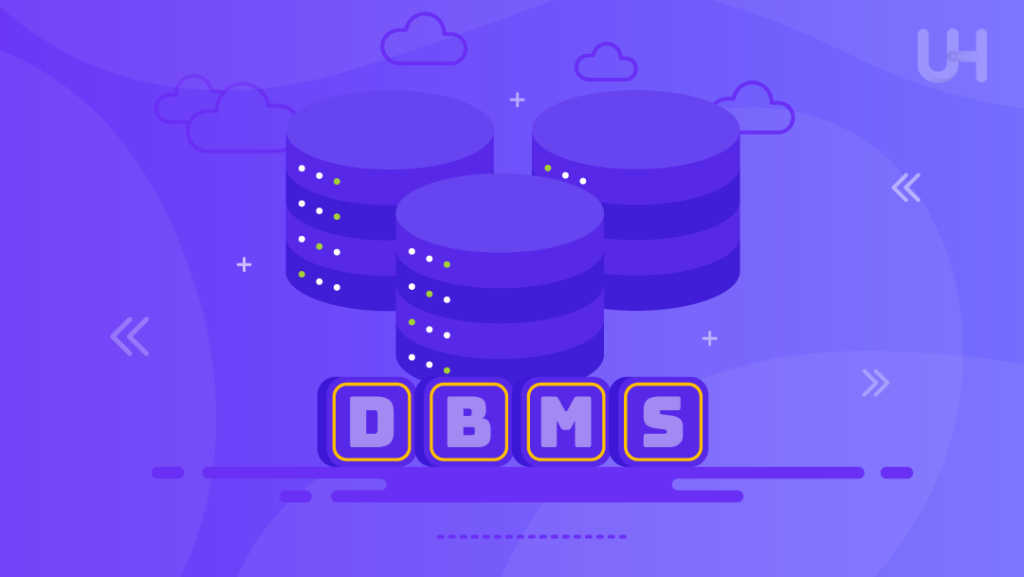
Although PostgreSQL and MySQL share many similarities, they also have some very marked differences that can weigh in on the choice of database to use for a certain application.
Performance
Because of its advanced indexing and optimization features, PostgreSQL excels at complex queries and large datasets. It is well-suited for applications that include complicated data analysis and reporting. Its ability to handle complex transactions and huge volumes of data makes it most preferred in enterprise-level applications.
On the contrary, MySQL is fine-tuned for read-heavy operations and performs admirably in any web application that requires quick responses to reads. It is very efficient with applications having large read-to-write ratios since it handles read queries quickly and efficiently.
Extensibility
One of PostgreSQL’s significant advantages is its extensibility, which allows the creation of new data types, functions, and operators. Hence, it is excellent for applications that require specific functionality. This feature helps to adjust the behavior of the database according to certain application requirements and thus makes a database very flexible.
MySQL allows flexibility but not the same kind of extensibility as PostgreSQL offers. However, MySQL’s simplicity and ease of use make it a strong contender for straightforward applications that do not require extensive customization.
JSON Support
While Apache PostgreSQL and MySQL support JSON data types, the former does so much more powerfully. PostgreSQL is equipped with very powerful JSON operators and functions for extracting data and running complex queries or Data Manipulation Tasks, making it perfect for applications involving extensive use of semi-structured data.
JSON support in MySQL is robust but less rich in functionality than in PostgreSQL. This implies that MySQL is good enough to run applications whose requirements for JSON handling are basic or modest. If your application requires complex JSON or XML data handling, then preference should be given to PostgreSQL.
Concurrency Control
PostgreSQL uses MVCC for concurrent transactions, making data performance and consistency faster. MVCC allows many transactions to run simultaneously without locking, therefore reducing the user’s delay. MySQL supports various approaches depending on its storage engine. For example, InnoDB offers row-level locking, which is pretty efficient in high-concurrency environments. On the other hand, PostgreSQL generally handles concurrent transactions using MVCC more efficiently.
Full-Text Search
Besides fully supporting the standard SQL syntax, PostgreSQL offers efficient and accurate full-text searching of text fields within the database. Advanced search functionality makes it suitable for applications requiring heavy-duty text searching.
MySQL also supports full-text searching, though for some storage engines only—in particular, InnoDB and MyISAM—furthermore, it’s not so remarkable as being implemented in PostgreSQL, so in applications with a strong reliance on text search, more solid and flexible varieties are provided by PostgreSQL.
Conclusion
The choice between PostgreSQL vs MySQL is always based on the application requirements. Both are powerful, reliable, and widely supported databases, hence making them excellent choices for many applications. PostgreSQL best fits applications requiring complex queries, advanced data types, and high concurrency. On the other hand, MySQL performs well in read-heavy operations and in web applications. Ultimately, there is no wrong decision: whether you use PostgreSQL or MySQL, you are looking at a robust database management system. Carefully evaluate your application needs to determine the best fit for your application so that you get the best performance and reliability.
When choosing between PostgreSQL and MySQL for your application, consider each application’s unique strengths. For seamless integration and optimal performance of your PHP applications with either DBMS, trust UltaHost’s reliable PHP hosting solutions.
FAQ
How do PostgreSQL and MySQL handle JSON data differently?
PostgreSQL provides advanced JSON functions and operators for complex queries, while MySQL offers basic JSON support suitable for simpler tasks.
When should I choose PostgreSQL over MySQL?
Opt for PostgreSQL if your application needs complex data types, advanced indexing, high concurrency, and large dataset handling.
How does PostgreSQL’s extensibility compare to MySQL’s?
PostgreSQL allows custom data types, functions, and operators, making it highly extensible. MySQL is simpler and better for straightforward applications.
What are the benefits of PostgreSQL’s MVCC?
PostgreSQL’s MVCC handles high concurrency without locking, providing better performance and data consistency. MySQL uses locking, which may be less efficient in high-concurrency environments.
How do PostgreSQL and MySQL support options differ?
Both have active communities and good documentation. MySQL offers extensive commercial support via Oracle, while PostgreSQL has varied support options from multiple sources.





